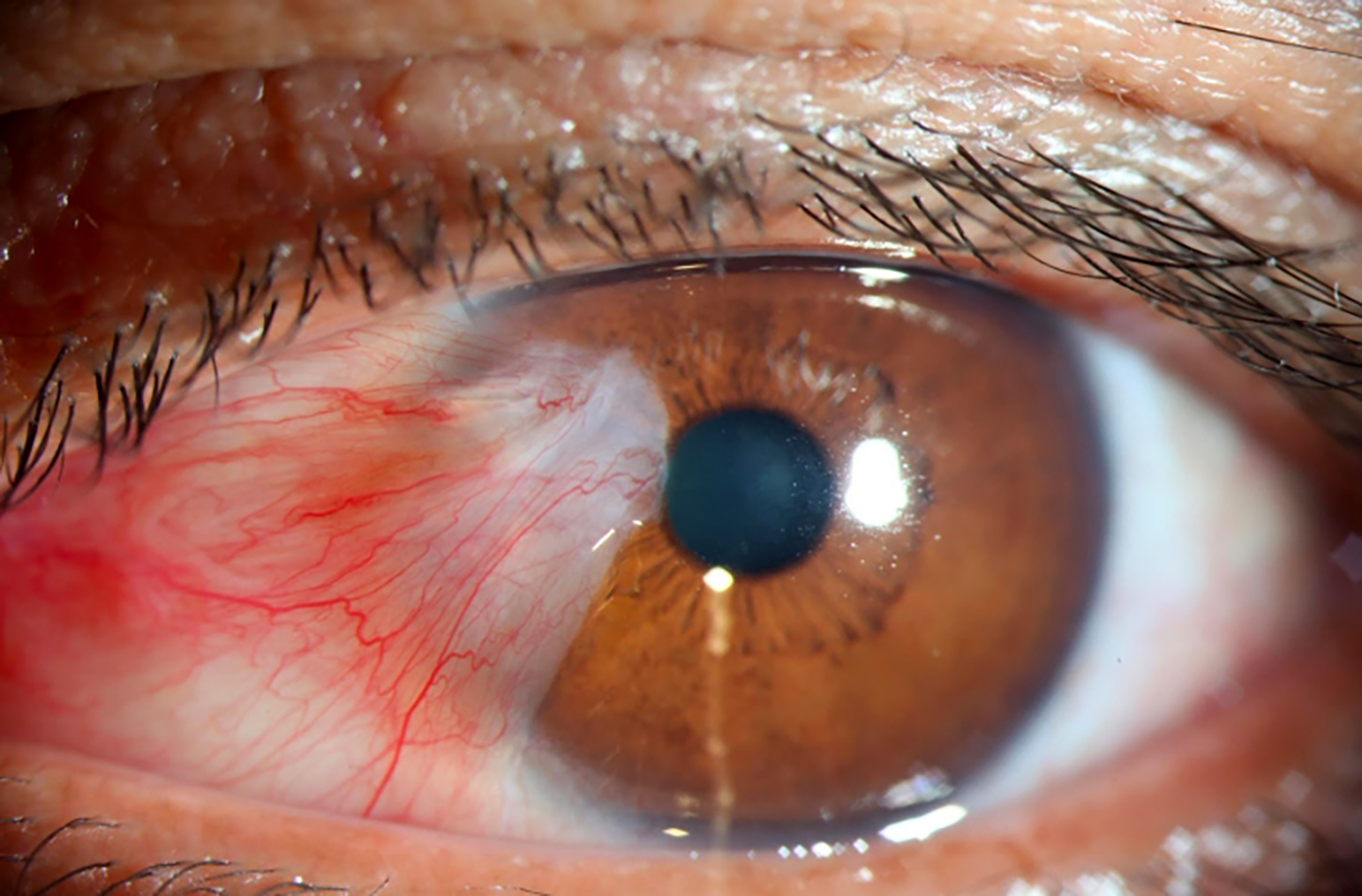IN Fiji’s beautiful tropical climate, we are blessed with sunshine almost all year round. However, the same sunlight that nourishes us can also pose risks to our eye health. One of the most common eye conditions seen by optometrists in Fiji is pterygium — a growth on the surface of the eye that can affect both vision and comfort.
What is a Pterygium?
A pterygium (pronounced te-ri-ji-um) is a fleshy, triangular-shaped growth of tissue that starts on the white part of the eye (the sclera) and slowly extends onto the clear front surface (the cornea). It usually appears on the side of the eye closest to the nose, but can also develop on the outer side.
This growth is non-cancerous but can become bothersome if it grows large enough to affect vision or cause chronic irritation. Many people refer to it as “surfer’s eye” — not because it affects only surfers, but because it’s often caused by long-term exposure to sunlight, wind, and dust.
Causes and Risk Factors
The main culprit behind pterygium is ultraviolet (UV) light exposure. In a tropical country like Fiji, where people spend a lot of time outdoors fishing, farming, driving, or working under the sun, UV exposure is particularly high.
Other contributing factors include:
- Chronic dryness or irritation from wind, dust, and smoke
- Outdoor occupations such as construction, farming, and transportation
- Genetic factors, as pterygium can run in families
- Lack of eye protection, especially not wearing sunglasses or hats
Because of these factors, pterygium is more common among Fijians living in rural and coastal areas, as well as among those who spend long hours outdoors.
Symptoms
In its early stages, a pterygium may cause no symptoms and might be noticed only during an eye check-up. As it grows, patients may experience:
- Redness and inflammation
- A gritty or burning sensation, as if sand is in the eye
- Blurred vision if the growth extends onto the cornea
- Cosmetic concerns due to the visible tissue on the eye
In severe cases, the pterygium can distort the cornea’s shape, leading to astigmatism or permanent visual impairment if left untreated.
Prevention
The good news is that pterygium is largely preventable. Since UV exposure is the leading cause, protecting your eyes is the key. Here are a few simple but effective measures:
- Wear UV-protective sunglasses whenever outdoors, even on cloudy days. Wrap-around styles offer better protection.
- Use wide-brimmed hats or caps to block direct sunlight.
- Avoid excessive exposure to dusty or windy environments, or wear protective eyewear when necessary.
- Keep eyes well lubricated with artificial tears, especially if you work in dry, windy, or air-conditioned places.
For children, early protection is also essential. Encouraging kids to wear sunglasses and hats can reduce their lifetime risk of developing pterygium.
Treatment options
In mild cases, treatment may involve lubricating eye drops or anti-inflammatory medication to relieve irritation. However, if the pterygium becomes large, continues to grow, or interferes with vision, surgical removal may be recommended.
Modern surgical techniques are highly effective and minimise the risk of recurrence. After surgery, patients are usually advised to use anti-inflammatory drops and continue wearing UV protection to prevent the pterygium from coming back.
The role of your optometrist
Regular eye check-ups are vital, especially for those frequently exposed to the sun. An optometrist can monitor the growth, advise on protection, and refer for surgery if needed. At our clinic, we often show patients images of their eye condition so they can better understand the importance of protecting their vision.
Final thoughts
While Fiji’s sunshine is one of our greatest natural blessings, it’s important to protect our eyes from its long-term effects. Pterygium may seem minor at first, but without proper care, it can cause discomfort and even permanent changes to vision. Simple habits like wearing sunglasses and seeking professional eye care can go a long way in keeping your eyes healthy for years to come.
Your eyes are precious — protect them from the sun, and they will serve you for a lifetime.



